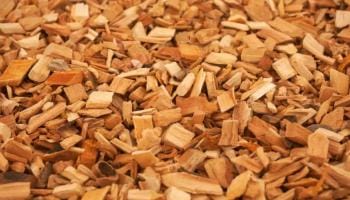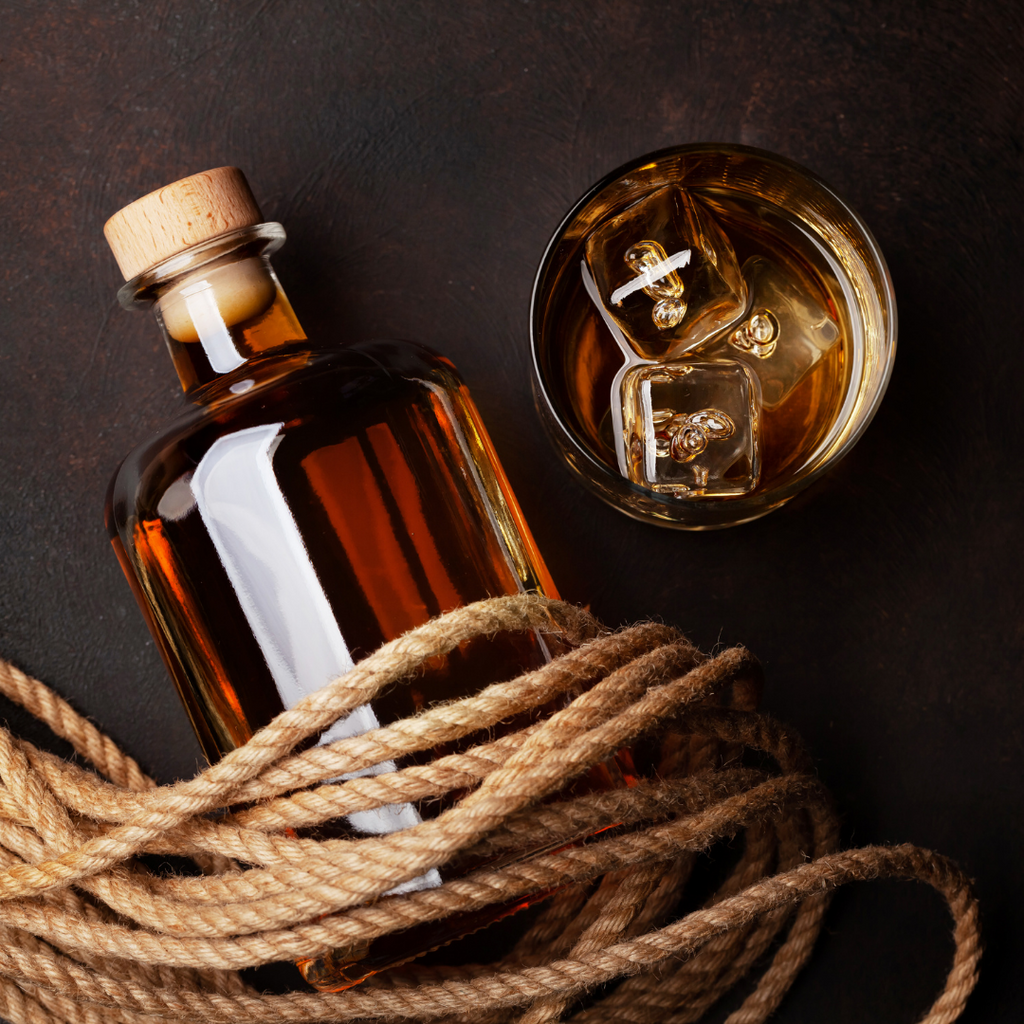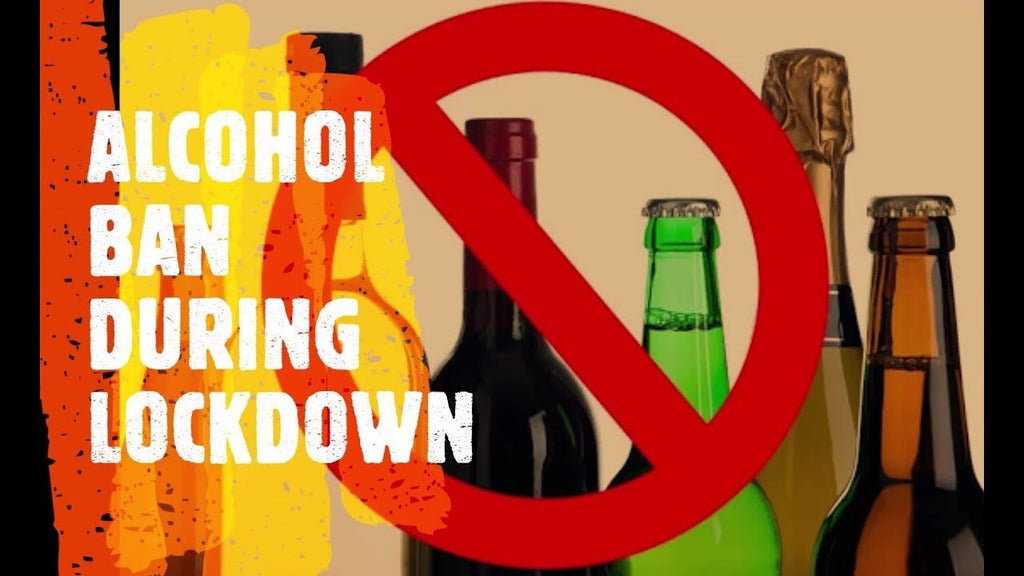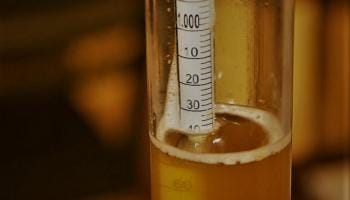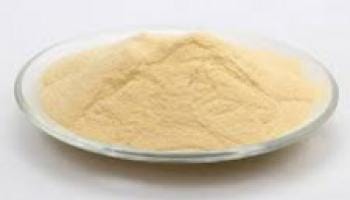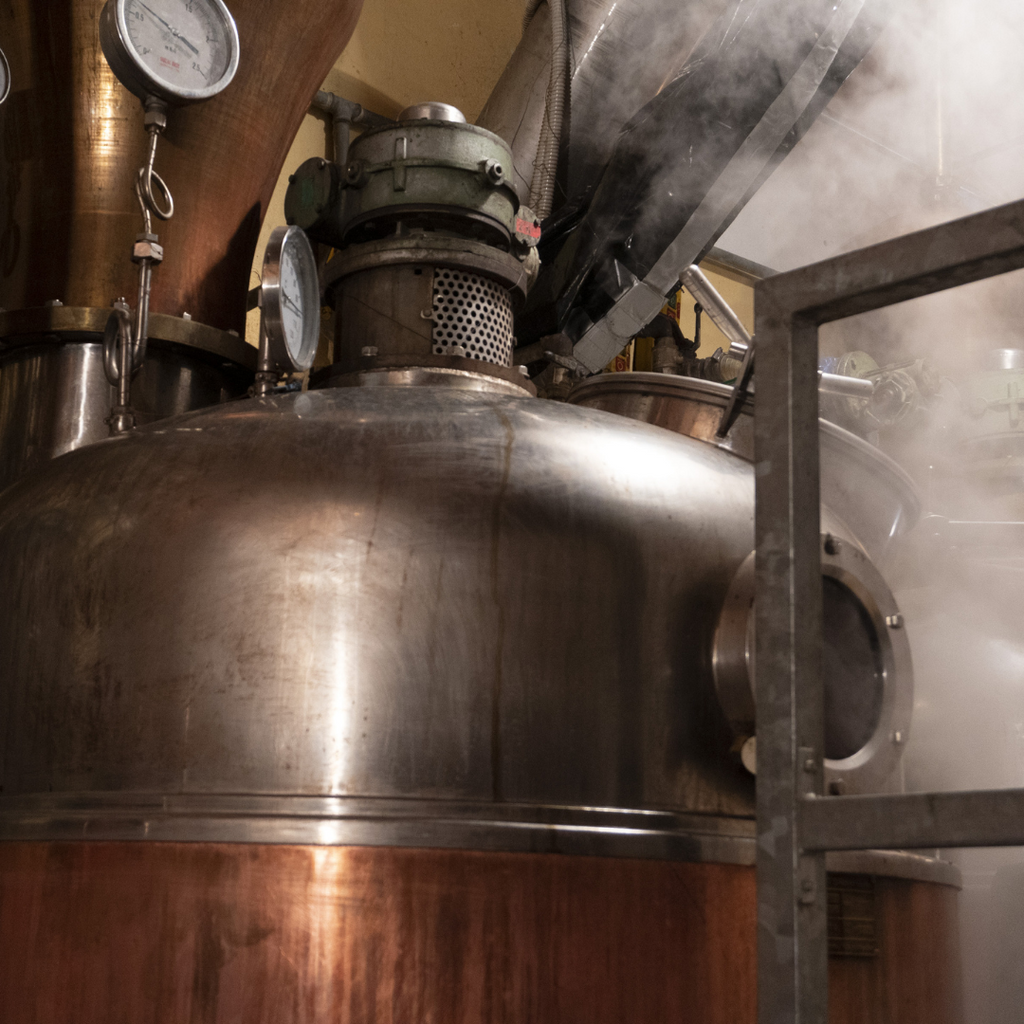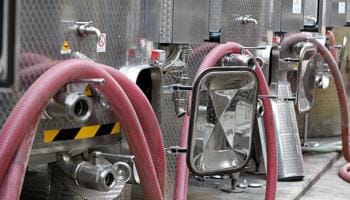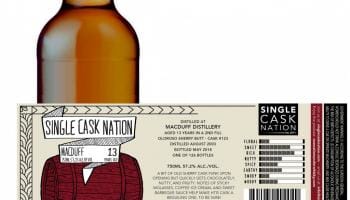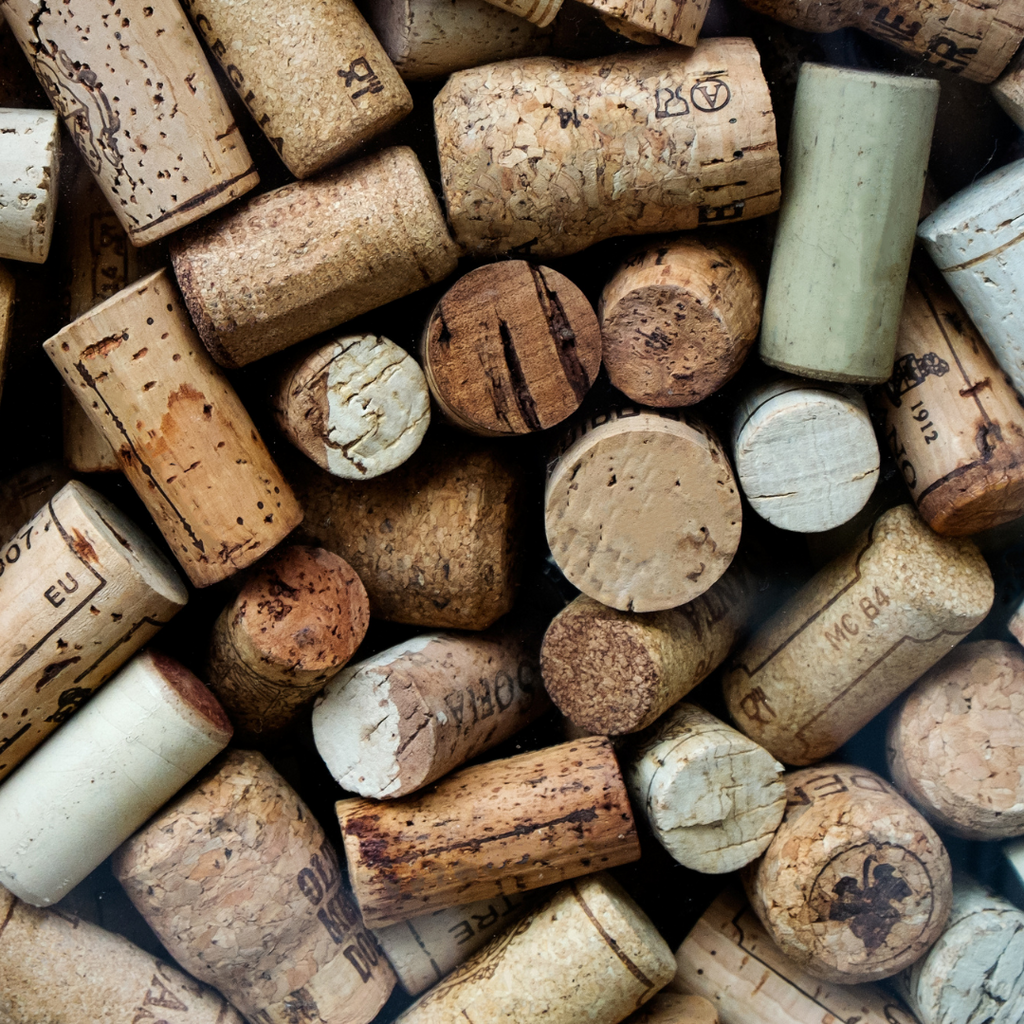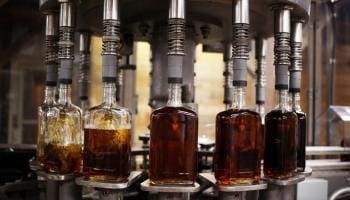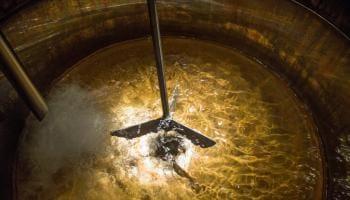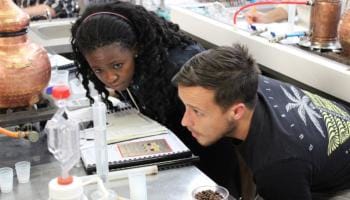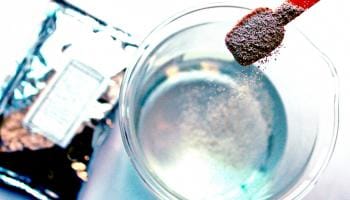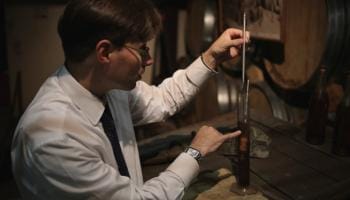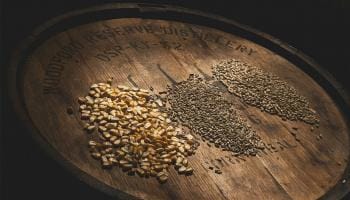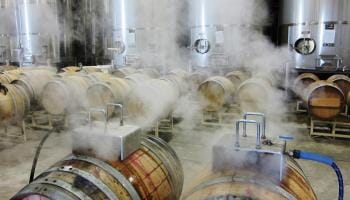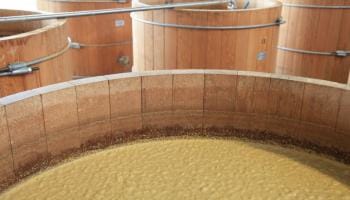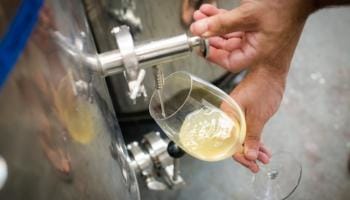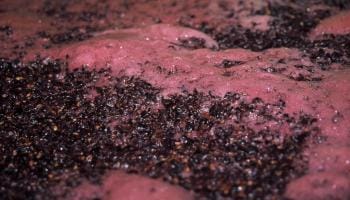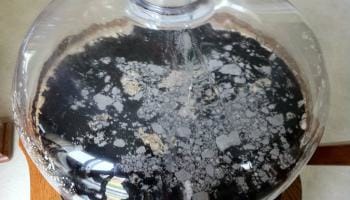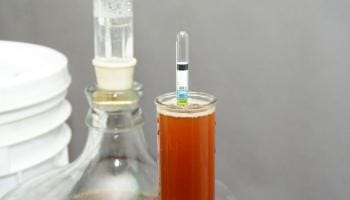Sidebar
Categories
Recent Articles
-
Raw Materials for Fermentation and Distillation - Part 1 May 02, 2024
-
Alcohol Origin, Ingredients and Processes Infographic May 02, 2024
-
Turning Milk Byproduct into Eco-Friendly Fuel March 25, 2024
Brandy
/
Commercial Distilling
/
Craft Spirits
/
Distillation
/
Extractions
/
Fermentation
/
History
/
Home Distilling
/
Legislation
/
Miscellaneous
/
Products
/
Recipes
/
South Africa
/
Spirit Enhancement
-
Can I use Smoking Wood Chips in Home Made Spirits?
onRecently, with the massive increase in Home Distilling here in South Africa, a lot of people have been posting about using smoking chips and other woods on their distillate to wood it. Many people are very happy with the results, and others are not. One of those unhappy individuals mailed us this morning with a question, and we thought others... -
Is Glitter and Colorants Legal in Gin?
onPLEASE NOTE: This article is written in the context of South African Law. Clients from other countries must please review their local legislation. Many times, inspiration for an article comes from questions posed by our Clients. Over the past two days we received three inquiries that were closely related, hence this article. The most recent inquiry, received via Email this... -
The Components of a True Rum
onPLEASE NOTE: This article is aimed more at Commercial Distillers than Home Distillers. If your curiosity about spirits and the search for recipes and techniques begins and ends with adding yeast to diluted molasses and then letting it sit in a Barrel for a couple of weeks, months and years (depending on the barrel size) then you should probably stop reading right here. ... -
A Bad Day for Craft Distillers in South Africa
onFirst published on Distillique's website 2020 GM Bosman Today, Friday 17 April 2020, is a bad day for Craft Distillers, as it's the due date for Excise Tax payment on December production - January declaration. A little known fact about Distilleries in South Africa - even in the broader Beverage Industry - is that with Distillers, Excise is paid on production, and not on... -
Air Sanitising and Purification Technologies
on“Ozone gas has been proven to kill the SARS coronavirus and since the structure of the new 2019-nCoV coronavirus is almost identical to that of the SARS coronavirus, it is relatively safe to say that it will also work on the new coronavirus, though it must be noted that there is only one current ongoing study in China at the Institute of Virology in... -
How to re-start a Stuck Fermentation
onWe have already discussed the 10 steps to a successful fermentation as well as how to fix failed fermentations. Sometimes, despite all of our efforts, we are stuck with a lifeless fermentation. The first step is to determine if it is worthwhile restarting the fermentation. Re-starting fermentations cost time and money (need to add more nutrients, possibly potassium carbonate and if necessary new yeast).... -
The importance of yeast nutrients
onIf you have been making wine or distilling you have probably heard about yeast nutrients. A lot of research has been done on the effect of nutrient additions to fermenting mashes, in which it has been made clear that proper yeast nutrient management improves the yeast performance, vitality and viability during fermentation. What is nutrients and why it is important? Yeast nutrients have three... -
Dilution before Re-Distillation
onAnyone who has ever done a double or even triple distillation of spirits will know that every time you run the spirits through the still it gets "stronger" - the purity increases, the ABV% percentage rises. Whatever expression your prefer. Most Distillers (especially those that did their training with us) would also be aware (based on the Ethanol - Water Phase Diagram) that the... -
Different ways in which Still Shape Impacts Spirit Quality
onBoth the shape and size of a still has a significant effect on the character of the spirit being produced – and it has a lot to do with copper. In a previous article we explored the use of Copper in stills, specifically comparing it to the use of Stainless Steel, the removal of Sulphur Compounds, and whether or not the use... -
Choosing Suitable Fermentation Vessels
onAs with many thing in the Home and Craft Distilling Arena's, people make choices regarding their fermentation vessels based on training, education, experience, advice, habit, tradition and budget. As a result, many different containers and vessels are used - especially at the Home Distilling Level, for fermentations. Just some of these vessels are: Food grade buckets (25 litre capacity) Glass carboys ... -
Basic Apple Cider Recipe - Brew your own Alcoholic Cider
onDISCLAIMER: Distillique does not believe in providing and selling recipes, as this goes against the Craft of producing your own products. The recipes we share have been sourced from clients and other sources, and as such, Distillique takes no responsibility and makes no guarantees regarding the quality, accuracy or safety of these recipes. Recipes are used at own risk, and are for the purpose... -
Health Warnings on Spirit Labels
onIf you know what you are looking for, it can be quite scary when walking through a Liquor Store Aisle and seeing all the illegal products on the shelves - products that can be deemed illegal just by mistakes on the labels. Now many of these products are blatantly illegal - and the price is already a give-away (selling below Excise Tax for... -
Varnished Barrels - Can we use them for Spirits?
onWe received a Facebook enquiry from a client two days ago, asking whether or not he could use a varnished barrel to age spirits in. Our intuitive reacrion was NO. It cannot be done. And the reasons included the chances of Contamination – ethanol actually absorbing or dissolving some of the varnish into the spirit, reduced air and alcohol movement through the wood due to the... -
Beginner Home Distiller Series: Understanding Yeast Strains
onThe enormous variety of strains on the market can be a bit daunting. At distillique, we sell about 15 yeast strains alone. We have seen that some people are quite hesitant when we suggest using a different strain than what they are used to. This article will hopefully educate our readers what characteristics to look at when it comes to choosing a yeast strain... -
Can I use bakers yeast to produce wine?
onOver the centuries, many new yeast species and strains have been discovered, bred and then chosen to perform specific tasks such as rising bread, producing alcohol, biofuels and probiotics. This is due to each strain having unique characteristics causing them to perform better in certain situations compared to others. Baker's yeast is the common name for yeast strains used in bread and other bakery... -
Spirit Changes in the Bottle
onPLEASE NOTE: This article does not refer to Bottle Maturation as we experience with Gin, where a Gin flavor profile can change greatly within anything form a week to a couple of months. Here we are discussing the changes that occur over long periods of time, specifically in Aged Spirits like Whisky and Brandy. The official line is that spirits do not... -
A Little Known Fact - Corked Spirits
onWhile people know that corkiness exists in wine, many think it’s not possible for the same fault to occur in Spirits. Admittedly, the incidence of cork tainted spirits is lower than wine – possibly because spirits’ higher alcoholic strength and aromatic intensity make it more difficult to pick up. But it does happen and manifests itself in the same way – a smell of... -
Bottles and Bottling - What do I need to keep in mind?
onFinding the right way to bottle your product is as important as finding the right way to make your product. Many Craft Distillers make some avoidable mistakes in their initial setup, that can lead to them having to change their packaging, capping their growth potential, or spending a lot more on bottling and packaging than they should. A couple of factors need... -
How to fix a Mechanical Seal on a Boiler Agitator
onAt first glance, the mechanical seals on bigger boilers with agitators may seem ""over complicated"". Once you understand them, it however, makes perfect sense. Lets start with an explanation on how the mechanical seal works. The seal consists of two main parts: A locking collar and a rotating seal holder. The shaft from the electric motor connects through the centre... -
Incorrect Readings - Comparing Refractometer and SG Hydrometer Readings
onFrom time to time Clients contact us with a question relating to the different readings obtained when using both a Refractometer and a floating SG Hydrometer in the same liquid. These readings can be quite far apart and we should be aware of that and the reasons behind it. The general “truth” that more dense liquids have greater Refractive Indexes (i.e. sugar... -
Can the use of Copper Stills cause Cancer?
onRecently an Article has been spread around through various Online Forums and Social Media pages, calling into question the use of Copper in Stills. The basis of this article is that during distillation Copper catalyses substances found in the fermentation into a compound called Ethyl Carbamate, and that this compound is Carcinogenic, and we should therefore not be using Copper Stills or Copper... -
The Effect of Boiling Rate on Fractions during Distillation
onOne of the catch phrases in the Home Distilling Community is “Low and Slow”. This refers to “Low Flame” or “Low Heat”, and the resulting “Slow” Distillation Process. This article addresses and explains this concept by describing the effect that the boiling rate in a batch boiler (i.e. not a continuous still) has on the composition of fractions during the... -
Active dried yeast: re-hydration or direct addition?
onActive dried yeast is a form of yeast in which yeast cells are dehydrated, leaving them in a dormant state. Some of the benefits associated with ADY include its capacity to be stored for extended periods of time and the speed at which it can be prepared for use. There is some conflicting information when it comes to adding active dried yeast to your... -
Andy Watts from James Sedgwick Distillery on Whiskey Aging
onThis is an extract from an interview with Andy Watts from the James Sedgwick distillery who, again in 2018, was selected as producig the world's best grain whisky at the World best whiskies award. Leah van Deventer from Food24 interviewed Andy Watts, the Master Distiller and Blender at Bains Distillery. The full Interview is available at this link. Age vs Quality Q: How important... -
Cleaning a New Still for First Use
onOnce you have purchased a still from Distillique, the urge to set it up and immediately start using it is great, but there are a couple of steps you need to follow first. Any metal manufacturing process leaves a residue of manufacturing oils on the item manufactured, and these oils (and other residue) can negatively impact on your distillate and spoil it. The following... -
I Bought a Small Barrel - Now What?
onCongratulations. You are now a proud owner of a fine barrel, hand-made from French Oak, and most probably it has a bit of history attached to it. Most of our barrels started off their lives as Wine Barrels. Then they were used for Fortified Wines like Sherry or Port, And now they are finally ready to receive your spirits. But, like all beautiful things,... -
How do I get rid of Fusel Oils in my Spirits?
onFusel alcohols or fuselol, also sometimes called fusel oils, are mixtures of several alcohols (chiefly amyl alcohol) produced as a by-product during alcoholic fermentation. The word Fusel is from the German word that means "bad liquor". What different Types of Fusel Alcohols are there? Fusel Alcohols can be classified into two different categories 1. Hazardous Alcohols Methanol (methyl alcohol), a poisonous compound (Lethal Dosage of 5... -
How do I Dilute my Spirits?
onThis is one of the most basic steps for any distiller, be it a Home Distiller, Hobby Distiller, Craft Distiller or Commercial Distiller. Your distillate (or infused product if producing Gin) will come out at a high percentage, and you need to dilute it down to bottling or legal strength. We do this by adding water. Sounds simple right? If only … How strong... -
Bourbon Grain Bills - What Grain(s) should I use?
onSo, you want to make your own Bourbon? What do you need, and what do you need to know in order to make Bourbon (or Whisky)? Can I trust information on the Internet or Social Media? Yes, I recognize the irony in posting on the Internet about not trusting information on the Internet, but let us move past that. The fact of... -
American Whisky in South Africa - Legal or not?
onAs the Craft Spirit Market grows, and South African consumers are being exposed to more new and interesting products and brands - the opportunities for exports to South Africa from foreign Spirit Manufacturers have grown. We have seen this with imported Gins, obviously, and more recently a great number of imported Rums, but what has gone a little unnoticed is the large influx of... -
How do I Legally Distill at Home in South Africa? - Part 3: Record Keeping
onPLEASE NOTE: This is the third Article of Three, dealing with the Process of Legal Home Distilling. Please read all three Articles for a full idea on how it works. Probably the most common question we get from clients visiting our store: Is it Legal to Distill at Home? This is followed closely by the second most common question: How do I... -
How do I Legally Distill at Home in South Africa? - Part 2: Registration
onPLEASE NOTE: This is the second Article of Three, dealing with the Process of Legal Home Distilling. Please read all three Articles for a full idea on how it works. Probably the most common question we get from clients visiting our store: Is it Legal to Distill at Home? This is followed closely by the second most common question: How do I Register... -
How do I Legally Distill at Home in South Africa? - Part 1: Stills
onPLEASE NOTE: This is the first Article of Three, dealing with the Process of Legal Home Distilling. Please read all three Articles for a full idea on how it works. Probably the most common question we get from clients visiting our store: Is it Legal to Distill at Home? This is followed closely by the second most common question: How do I... -
Chasing the Green Fairy - Absinthe Facts and Fiction
onAbsinthe (The green fairy spirits) has shown a remarkable revival the last 20 years after having been banned in most of Europe for almost a hundred years. Although there were no legal definitions for Absinthe (except for Switzerland), until its inclusion into EU Liquor Legislation, there are very good guidelines on what makes a good, and what makes an inferior absinthe. Also, not a... -
How Barrels Work and How to Care for them
onOak barrels are more than just expensive liquid-tight containers that give oak flavor to spirits and wines. They soak-up and breathe, flex, filter oxygen out of the air, aid wine and spirit maturation and allows spirits to develop unique character. They flavor and color our spirits and allow the most volatile (and mostly unwanted) components of our distillates to ""disappear"". A brand new (first... -
As a Craft Distillery, how do I work with the Department of Agriculture?
onThe Department of Agriculture’s Liquor Division is probably them most unappreciated and undervalued group of Government Employees in the country. Yes, a lot of people have bad things to say about them, and they get blamed for not allowing us as Crafters to do what we want, and to innovate and to be daring, but they have a thankless job. They are entrusted to... -
What do I need to Register for with SARS as a Craft Distillery?
onSARS, or the South African Revenue Service, is currently the biggest challenge that faces Craft Distillers and Entrepreneurs in South Africa. There are various reasons why this is the case. Most people will point fingers and blame ineptness, laziness, corruption, etc. In my personal capacity however, I do not think that it is fair to paint all SARS employees with the same brush. There... -
How do I get a License for a Craft Distillery in South Africa?
onGetting a License for a Craft Distillery in South Africa is not easy, it is not fun, and it is not quick … but it can be done. The aim of this article is to give you an indication of the steps that need to be followed, the different organizations you will be dealing with, and everything else you need to do... -
What Size and Type of Equipment do I need for a Craft Distillery?
onSelecting the right equipment for your Commercial Craft Distillery can be quite a task. We often get asked to provide a "standard Craft Distillery" quote, but the fact to the matter is that there is no such thing. What do I need to know to Design a Craft Distillery? Our standard response to any Quote request is the following 6... -
Innovating with Whisky in South Africa
onIn a previous Article we looked at Whisky Legislation in South Africa, specifically the challenges it poses, and the restrictions we face. A question I often get from our Clients and Trainees is: “Within the laws and regulations, can I innovate with Whisky in South Africa, and how do I do that.” The answer to this question is YES you can, and in several... -
The Challenge of Craft Whisky in South Africa
onCraft Gin has taken the world by storm, with literally hundreds of new brands, spirit producers and distillers flooding the markets of Europe, Africa, the Far East and Australasia. But this “craze” is nowhere near as big in the United States. Yes, there are Craft Gins produced and consumed in the USA, and yes there are some big brands coming out from those Northern... -
Tips for Crafters to Grow Distribution in Pubs and Bars
onLooking at the premium Spirit Category where Craft operates, over the past couple of years, even if we account for inflation and excise tax increases, Spirits revenue grew considerably, and is forecast to continue to grow annually. This refers to revenue. Volume on the other hands remains, at best static. In times past the premium spirits market was dominated by a... -
Factors to Consider to Increase the Perceived Value of your Product
onIn an ideal world, our products will speak for themselves, value would be determined by quality and taste alone, and customers would pay accordingly. In an ideal world … But the world is not ideal, or fair, and we are faced with this little thing called Marketing and Hype that plays a role in determining the price of our products – or at least... -
Micro Liquor Manufacturing Licenses - What to watch out for
onFor some time now the whole South African Liquor License Industry has been chaotic. What issues have Distillers experienced with Liquor License Applications? If it’s not a question of waiting for inspectors (up to 7 months), then you have to deal with inspectors that don’t know what they are doing, or people blatantly holding you for ransom for bribes, or inspectors that have no... -
Closed Cooling Systems and their Challenges
onMore and more we receive inquiries regarding Closed Cooling Systems. This refers to a closed loop for the water used during cooling to minimize water use. The reasons for these requests and wish to minimize water use are varied, but can be for economic reasons (to save money), for ecological reasons (environmental awareness) or practical reasons (a local water shortage). Before we discuss the... -
Monitoring Fermentations
onThe continuous monitoring of fermentations is a common technique used in Beer Brewing and Wine Making to achieve specific results in terms of flavor, aroma, alcohol content, etc. In fermentations for distilling purposes however, we monitor the fermentations merely to ascertain the progress of the fermentation, to calculate the remaining sugar and to calculate possible yield or additional yield. We can also predict possible... -
Failed Fermentations and Fixing Them
onIMPORTANT – This Article refers to methods and information covered in two other Articles: 10 Steps to a Successful Fermentation, and Monitoring Fermentations. It is advised that you read these two articles first to fully understand the information below. It happens, from time to time, that you have a failed fermentation. Sometimes we pick this up early, either by monitoring the release of... -
Bacterial Infections in Fermentations
onBacterial and mold Infections are unfortunate but not uncommon occurrences in fermentations, specifically grain, potato and other starch related fermentations. How do I know if I have a Bacterial Infection in my Fermentation? You can quite quickly spot a Bacterial Infection in your fermentation by the color change – the fermentation first going grey, then darker grey and finally black or a beautiful silky... -
How to make your own Yeast Nutrients
onAs explained in our Article about successful fermentations, Nutrients play a very important in Yeast propagation and fermentation. Among these nutrients there are two main categories, namely Macro and Micro Nutrients. What are Yeast Macro Nutrients? The first, Macro nutrients, are those that are required in large concentrations, and they include magnesium sulphate, di-ammonium phosphate (DAP), thiamine, hydro-chloride, calcium pantothenate, folic acid, niacin, ammonium... -
Handy Sugar Calculations
onSugar is the most important chemical component in the production of alcohol and alcoholic products. No sugar, no fermentation, no alcohol. There are however certain situations where excessive sugar can be a detriment to our fermentation and products, as described in our Article about Successful Fermentations. We therefore need to know how much sugar we have, what that will give us in terms of...

